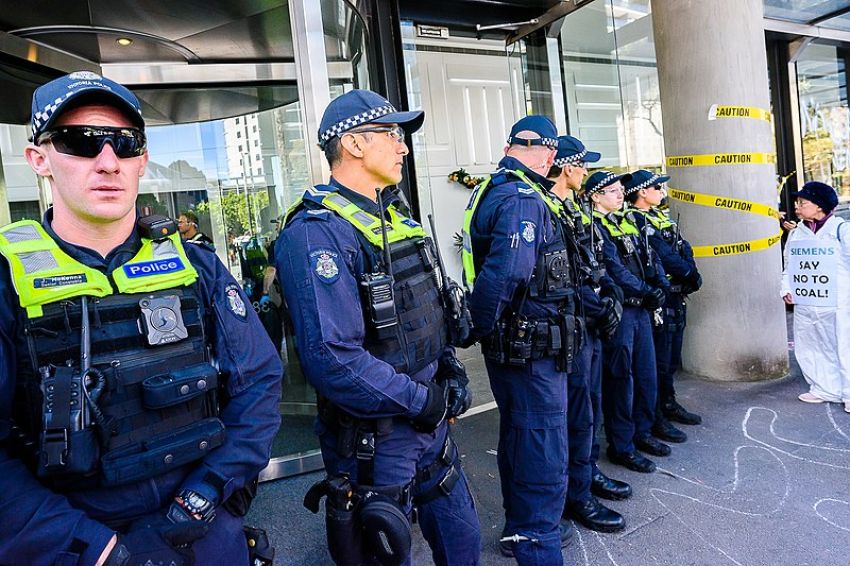
Victoria Police has introduced new rules for journalists covering protests: they are now required to provide media identification to the police.
This comes after police arrested a Herald Sun journalist and a photographer at an anti-vacine rally in Melbourne on February 20. Police later apologised, saying they had difficulty in identifying the pair, despite being shown media accreditation cards and the two reporters identifying themselves as journalists.
The two journalists were handcuffed, taken away and given a $1652 fine for failing to comply with the Chief Health Officer’s directions regarding social distancing.
A police statement said: “In the past 12 months, Victoria Police has seen an increase in hostile and at times violent protests throughout the state,” and that the protest at Fawkner Park was no different.
It also claimed that “the reality is we have seen an increased number of protesters claim to be media in order to actively avoid police enforcement”.
Following this embarrassing incident, the police issued its own media accreditation to some journalists at protests, a move criticised at the time by the Media, Entertainment and Arts Alliance (MEAA).
The union argued on April 30 that this was “overreach” which allowed police to select the journalists it wanted to cover the news event.
“At no stage was the MEAA consulted about the move which ignored hundreds of journalists at smaller media outlets, as well as freelancers and student journalists.”
“The COVID-19 pandemic has elevated safety issues for journalists who seek to tell truths to keep the community fully informed,” the MEAA said. “Abuse is directed at journalists by people who embrace misinformation and who are antagonistic to anyone who does not believe fact-less opinions.
“The polarisation of politics has been encouraged by the concentration of media ownership; audiences seek information from media outlets that align with their views that can confirm their prejudices — any report that does not conform, no matter how valid, is decried as biased, often leading to abuse being heaped on the journalist.”
However, several months on, it seems that the MEAA has changed its mind.
On June 1, the union said it had had “positive” discussions with the police about media accreditation requirements at “public protests and rallies”. Also, “with the assistance of the Victoria Police”, it issued a “tip sheet” for journalists covering protests.
It agreed with police that a union membership card would be considered sufficient accreditation and said all financial members would have a card and could apply for a plastic card with a headshot.
This is a big step backwards. It concedes the police have the right to determine who is, and who is not, a legitimate journalist at protests even though it admits that “the new accreditation system had created confusion and ignored the needs of freelancers and workers from small media outlets”.
The police are certainly not defenders of democratic rights or journalistic freedoms. It is alarming to see the MEAA’s about-face, accepting the Victorian Police’s demands on determining who is and who is not a legitimate journalist at protests.
This move also accepts a dangerous overreach of police powers.
In the age of the internet and multiple social media platforms, many more people would consider themselves journalists — “legitimate” or not. These days, the creation of blogs and social media pages is generally on a voluntary basis and not necessarily tied to an institution or organisation, is widespread among young people.
That is why it is disappointing to see the MEAA accede to Victoria Police.
The new rules are a fundamental attack on the rights of journalists and should be opposed.
[Jacob Andrewartha is a presenter at 3CR Community Radio and is a regular contributor to Green Left.]